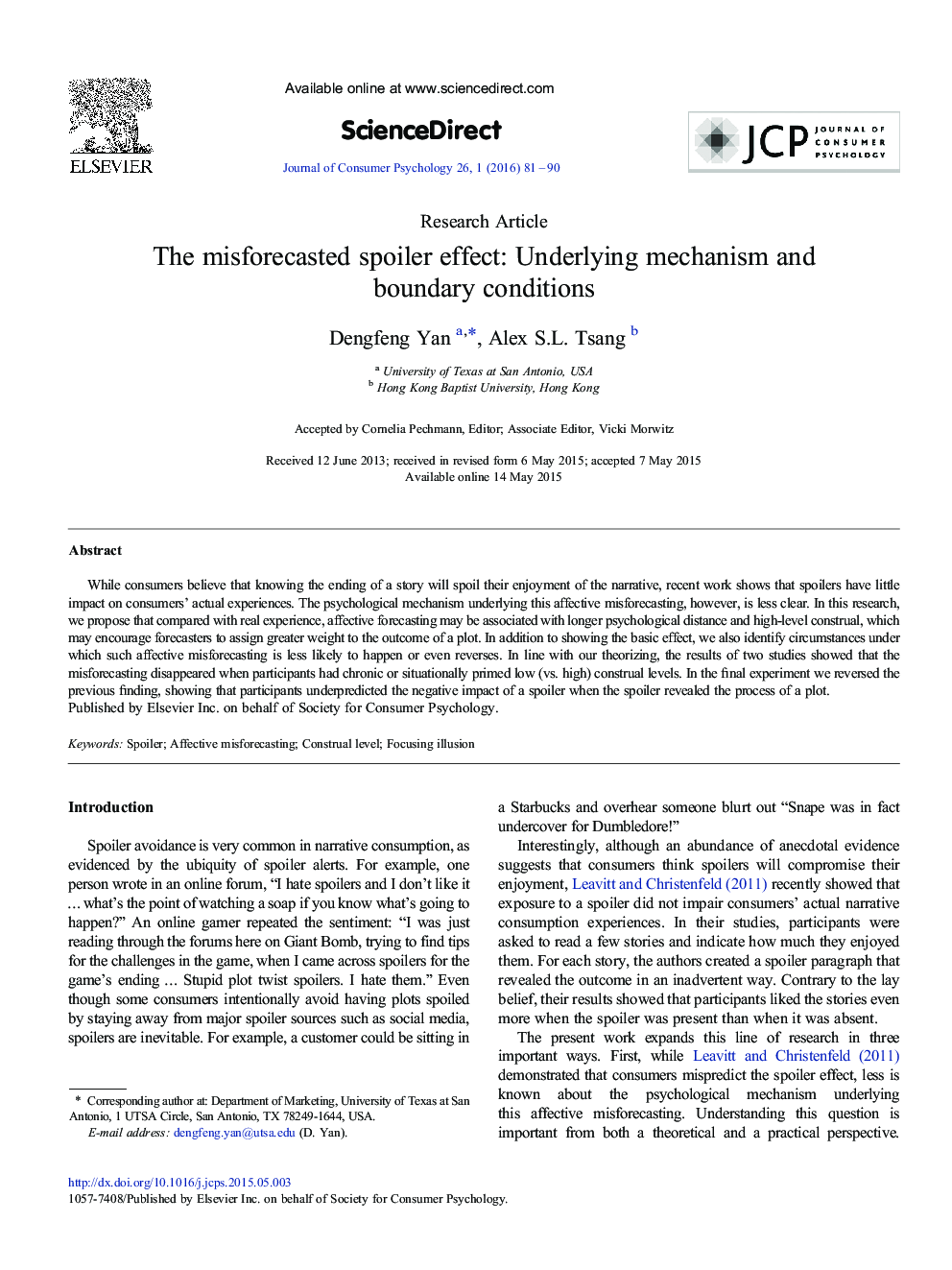| Article ID | Journal | Published Year | Pages | File Type |
|---|---|---|---|---|
| 882001 | Journal of Consumer Psychology | 2016 | 10 Pages |
While consumers believe that knowing the ending of a story will spoil their enjoyment of the narrative, recent work shows that spoilers have little impact on consumers' actual experiences. The psychological mechanism underlying this affective misforecasting, however, is less clear. In this research, we propose that compared with real experience, affective forecasting may be associated with longer psychological distance and high-level construal, which may encourage forecasters to assign greater weight to the outcome of a plot. In addition to showing the basic effect, we also identify circumstances under which such affective misforecasting is less likely to happen or even reverses. In line with our theorizing, the results of two studies showed that the misforecasting disappeared when participants had chronic or situationally primed low (vs. high) construal levels. In the final experiment we reversed the previous finding, showing that participants underpredicted the negative impact of a spoiler when the spoiler revealed the process of a plot.
